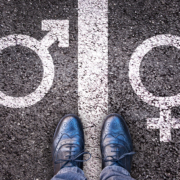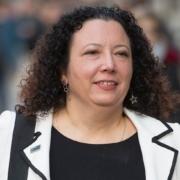Do Not Adjust Your Set: Sex, Gender and Public Policy
 Last month, David Morgan, a psychoanalyst, and Dr David Bell, a consultant psychiatrist, organised an online conference with around 500 attendees. Recently retired from the Tavistock Clinic, Bell was a staff governor and wrote a report on their Gender Identity Disorder Service (GIDS) in 2018 in which he raised many serious concerns about its provision.
Last month, David Morgan, a psychoanalyst, and Dr David Bell, a consultant psychiatrist, organised an online conference with around 500 attendees. Recently retired from the Tavistock Clinic, Bell was a staff governor and wrote a report on their Gender Identity Disorder Service (GIDS) in 2018 in which he raised many serious concerns about its provision.
The conference, which had gender dysphoria in children and adolescents as its main focus, takes its title from a slogan popular in the sixties. In those days, if your television wasn’t working and the fault was with the broadcaster, a notice would be displayed on the TV screen saying, ‘Do not adjust your set, there is a fault in the signal’. In other words, many of us watching the messaging around transgenderism in the last few years may be thinking there is something wrong with ourselves and our understanding of sex and gender. The conference was seeking to reassure participants that the fault is not on our end, it’s with the message being ‘transmitted’.
This conference looked at a number of different perspectives to help deepen our understanding of the issue.
Ideology
Heather Brunskell Evans pointed out that gender identity treatment has been completely captured by identity politics and activist groups. Adoption of the language of transgenderism as an umbrella term by Stonewall was a major factor, as was the guidance from the World Professional Association for Transgender Health (WPATH), which advocates a totally affirmative approach. Gender, not biological sex, is held to be the true sex. A transman is not a girl wanting to be a boy but is actually a boy; therefore, altering a child’s body to fit their perceived gender has become the accepted treatment.
Heather said that ‘affirmation only’ is an activist approach, not a clinical one and has created the exponential growth in referrals of children that we have seen in recent years. GIDS sees itself as steering a middle course between activists and therapists, who advocate psychotherapy rather than medicalisation. However, it actually advocates a pathway that sterilises children based on an activist agenda.
Julie Bindel talked about the opposition she has faced in trying to speak out on this issue. The institutional capture of academia and healthcare organisations leads to no-platforming and cancellations. There is now a situation of total fear – fear of losing funding or of bullying, which means that many organisations have simply conceded that transwomen are women.
She also raised the issue of the increase in girls presenting as trans and the fact that this a very different subgroup to adult transwomen. The underlying issues of this need to be explored, she said, asking ‘Why is this regressive ideology so attractive to young people?’ Possible reasons include internalised homophobia and misogyny, and in my clinical experience, I have found that most teenage girls experiencing gender-based distress don’t express a desire to be boys so much as simply to not be girls.
As Christians perhaps we need to consider what part we play in this and how we can help young people to appropriately explore issues of femininity, masculinity and sexuality in a Biblical context.
The issue of identity politics was addressed by David Pilgrim and I have to confess that as a humble paediatrician, this was somewhat tricky for me to get my head around! He talked about critical realism as opposed to epistemological relativism! Our understanding is shaped by our relationships with the natural world, with one another, with social and economic structures and also our unique biographies (our lived experience). In a post-modern world, however, objective truth becomes a dirty word and language changes constantly to accommodate the lived experience alone.
Michael Biggs, a sociologist who has written extensively on the Tavistock’s experiment with puberty blockers, spoke about how the combination of queer theory, social media and puberty blockers has in effect created the transgender child. Transsexualism emerged due to advances in medical technology, and the use of puberty blockers extended this to children. When puberty blockers were introduced in the Dutch protocol, the emphasis was on the issue of ‘passing’ as the preferred gender. Issues around sexual function and fertility are sidelined.
Puberty blockers are wrongly presented as a way to ‘buy time’ for fuller diagnosis, with fully reversible effects. No randomised control trial has ever been carried out and Biggs posed the question that with what we now know about puberty blockers and the long-term outcomes, would it ever be ethical now to do a trial?
Three speakers brought feminist perspectives. Selina Todd talked about how gender ideology has become a huge issue in academia. Feminists had made huge gains in equality legislation, anti-sexist curricula, and women’s studies, all of which created a climate in which sexism could be challenged and questioned. These gains are now however being threatened by gender theory and the replacement of sex by gender in academic writing and teaching. Sex is so material that it presents a threat to post-modern theory.
Vaishnavi Sundar, a writer and filmmaker based in Southern India, spoke about the situation in India. She realised that liberal feminism actually portrays oppression as empowering (e.g. sex work is work). In India, many lesbian women kill themselves because they are afraid of being persecuted by their families. Transgenderism is seen as a way to avoid this. Vaishnavi has made a four-part documentary on the subject, which is well worth watching.
Clinical perspectives
Clinical perspectives were given by Lisa Marchiano, a Jungian psychotherapist, and Marcus and Sue Evans, both formerly working at the Tavistock.
Lisa talked about how we need a shared understanding of reality and how the results of being cut off from reality can be devastating. The gender affirmative model, which allows children to decide for themselves their internal gender identity, conflates gender dysphoria with transgender identity. It rests on false premises and privileges gender identity over biological reality.
Instead, we can validate a young person’s discomfort, acknowledge their distress and allow gender non-conforming behaviours, but still help them understand and manage reality. We do not help them by encouraging them to cling to their delusions. Medical and surgical treatments only create the appearance of the opposite sex. Biological sex cannot be changed.
Marcus and Susan Evans are writing a book exploring a therapeutic model for working with children and young people with gender dysphoria. They stressed the fact that gender dysphoria must not be separated from other mental health difficulties, and that denial of psychological factors can lead to unquestioning affirmation. Adolescent confusion and distress is actually a normal part of development, but we are bringing up a generation of children that do not expect to experience any pain or suffering, and thus are quick to seek life-altering treatment instead of learning to work through their distress. When a young person states they are trans, it is important to listen to what they are actually feeling and facilitate exploration. Young people with gender dysphoria often have a very fixed mindset, believing that if they transition then everything will be OK. Transition involves putting a block on sexual development but if a person has distress around their sexual development or sexuality they need to be helped to come to terms with these realities.
In Conclusion
This was a fascinating event, which highlighted the huge concerns that are increasingly coming out into the open. Children and young people are being harmed by an ideology and an overly sexualised society and many see identifying as something other than their biological sex as an answer to their distress. Instead of their distress being managed and alleviated by helping them to come to terms with their biological reality, they are affirmed and headed off down a medical and surgical pathway that results in loss of sexual function and often infertility but does not address underlying psychosocial and mental health issues.
As Christian medical professionals, we have a duty of care to understand these issues and advocate for these vulnerable children and young people. We need to listen to their distress and help them to understand biological reality. We also need to consider ways in which we can stand up against a culture of sexualisation and rigid gender stereotypes, whilst balancing that with biological realities of the differences between male and female and remembering it was God, in creating male and female. who created those differences.
Dr Julie Maxwell is a Community Paediatrician









Leave a Reply
Want to join the discussion?Feel free to contribute!